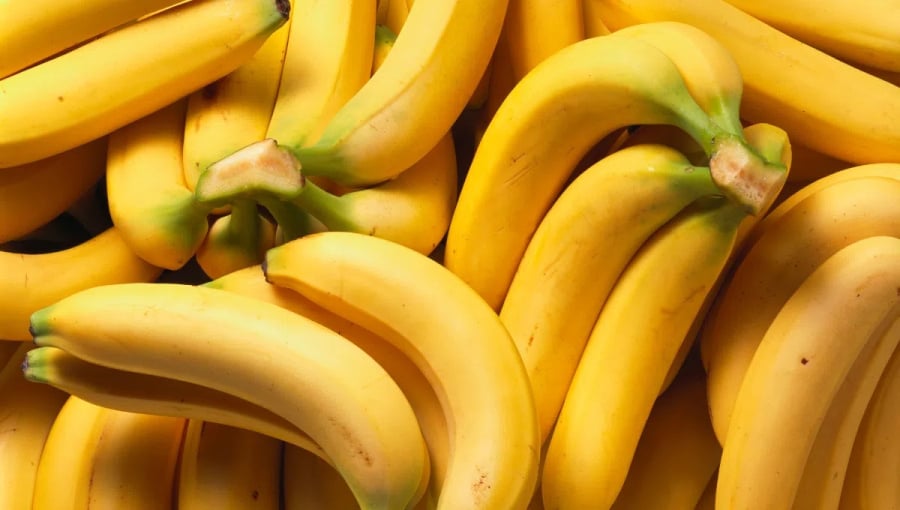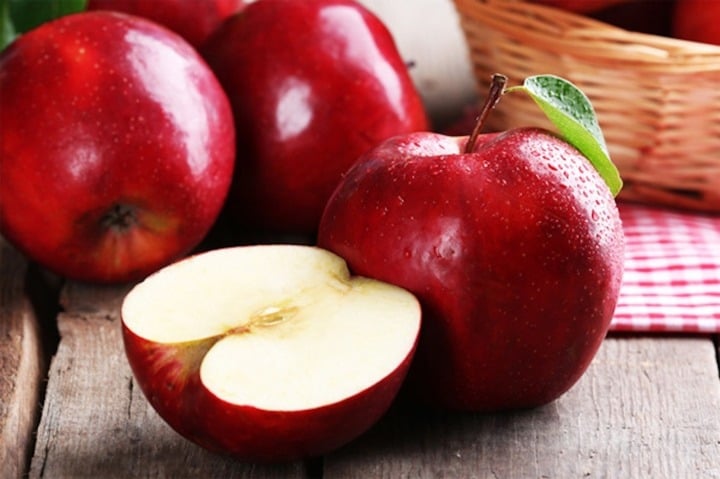Hypertension, often referred to as the “silent killer,” is a leading cause of stroke and coronary heart disease. However, a new study suggests that a diet rich in bananas and apples may help hypertensive patients live longer.
According to Sohu, data published by China Central Television (CCTV) indicates that individuals with high blood pressure who consume bananas or apples 3-6 times per week have a 24-40% lower risk of death from all causes. Remarkably, regularly eating both fruits reduces the mortality rate by up to 43%.
Other fruits, such as pears, pineapples, and grapes, did not demonstrate similar benefits for hypertensive patients.

Why are bananas good for people with high blood pressure?
Bananas are an excellent source of potassium, containing approximately 256mg/100g. This is twice the amount found in grapes (127mg), more than twice the amount in pineapples (113mg), and three times the potassium content of pears (85mg).
Potassium plays a crucial role in flushing out excess sodium from the body, thereby reducing pressure on blood vessel walls. Additionally, this mineral helps dilate blood vessels, increases nitric oxide production, and naturally supports stable blood pressure.
Are apples a “superfood” for cardiovascular health?
Apples are not only rich in fiber but also abundant in flavanol, a potent antioxidant that effectively lowers diastolic blood pressure. Research shows that apple peels contain 543.9-1227.9mg/kg of flavanol, significantly higher than the fruit’s flesh.
Flavanol also helps reduce total cholesterol and LDL (“bad” cholesterol), both of which are closely linked to the risk of cardiovascular disease.

Busting myths about hypertension treatment
Many people still rely on traditional folk remedies, but medical experts caution that some of these practices can be harmful if not used appropriately.
– Using celery juice or ginseng powder as a substitute for medication:
PGS. TS Thai Quan, Director of An Zhen Hospital, states, “Hypertension medications have undergone rigorous clinical trials and have minimal side effects while being safe for the liver and kidneys. In contrast, folk remedies like celery juice and ginseng powder lack scientific evidence and cannot replace prescribed treatments.”
– Drinking alcohol to lower blood pressure:
Dr. Trinh Van Lap warns, “While alcohol may temporarily lower blood pressure, it can lead to a rebound effect over time. Blood pressure can spike the next morning, increasing the risk of stroke or brain blood vessel damage.”
Some drugs, such as nifedipine, felodipine, and amlodipine, are metabolized by the CYP3A4 enzyme. Grapefruit also interacts with this enzyme, potentially amplifying the drugs’ effects and leading to dangerous hypotension if not carefully monitored.
































